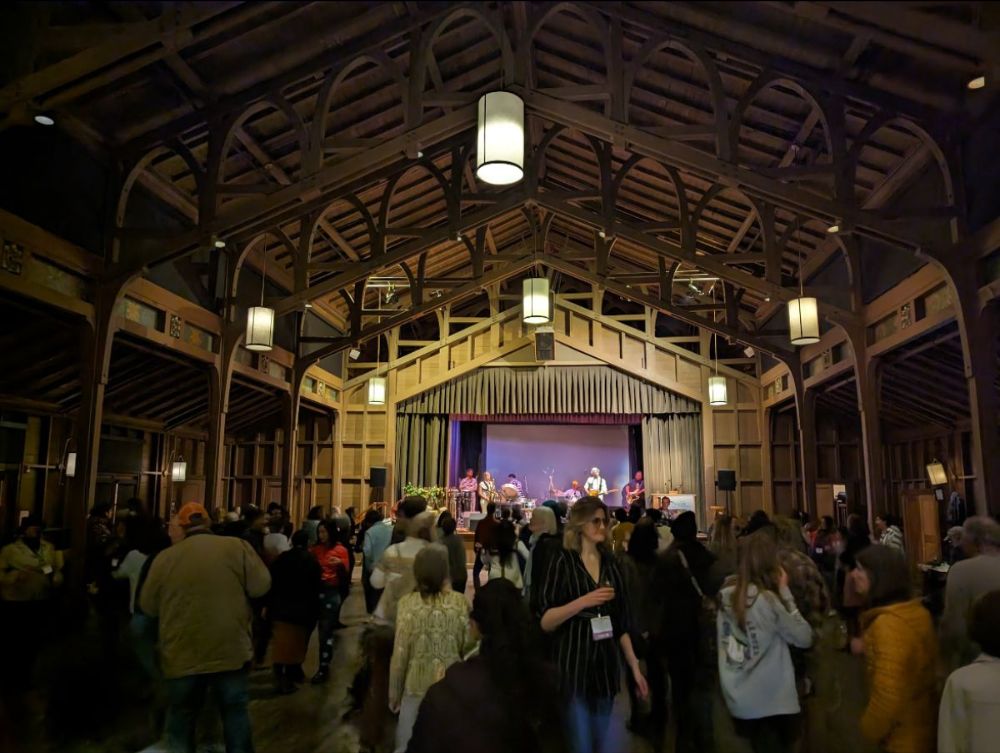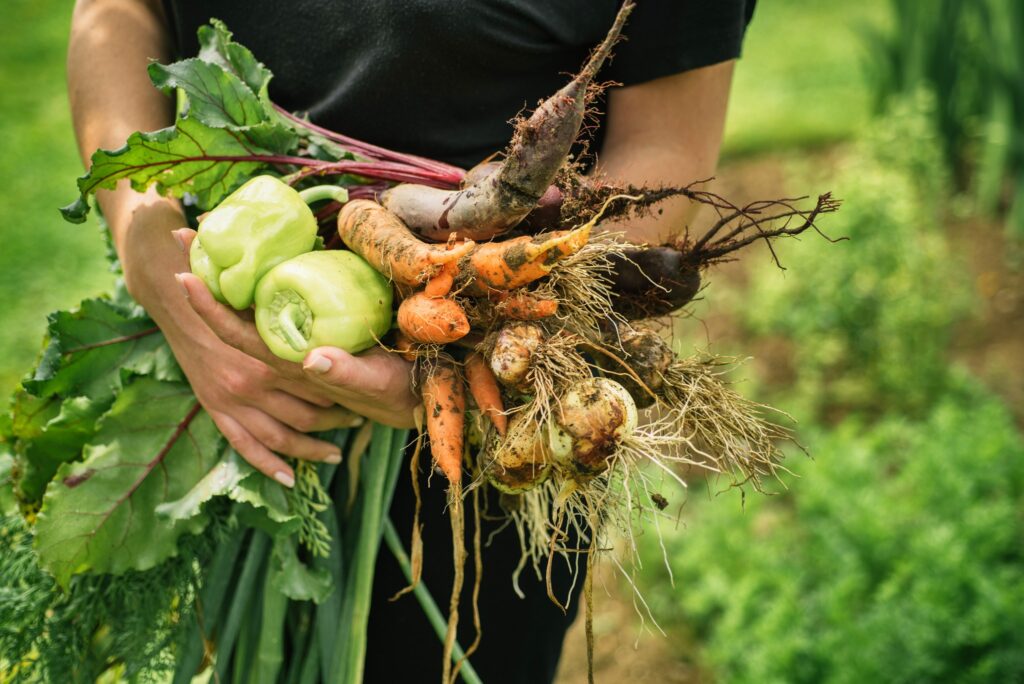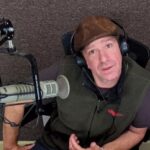
January 21, 2025 – EcoFarm isn’t enough.
That’s not something you expect to hear from one of its organic pioneers, who was there more than four decades ago when the oldest and largest organic farming conference on the planet was a humble hang at a fire station in Winters, California, a rural town still smaller than 8,000 residents even today.
That means Miguel A. Altieri, emeritus professor of agroecology at UC Berkeley and lifelong agroecology researcher and educator, has been participating in EcoFarm across its entire 45-year run.
By the way, happy birthday, EcoFarm. But Altieri is less focused on celebration and more on reflection and mobilization.
“Unfortunately this group cannot be considered a social movement,” he says. “We have fun, bring speakers, share experiences, but there’s no follow up, no political pressure to counteract industrial forces shaping California farming.”
He notes the creation of EcoFarm and fellow nonprofit California Certified Organic Farmers overlapped, accompanied by a wariness that CCOF standards focused on production.
Lost were social standards such as farmworker welfare or limiting farm scale to be certified—which led to a tiny percentage of farms controlling a dominant swath of the organic market.
“Concentration came because [the standards] ignored social dimensions and farm size,” he says. “Now small producers, many pioneers, have to go to farmers markets and through CSAs, to cater to white upper middle class customers in order to survive…unfortunately their healthy food is not accessible to lower-income consumers.”
He believes evolving a clear policy agenda holds the potential to transform a group into a movement that can transform the food system into a more socially just and resilient one.
“Right now, because EcoFarm doesn’t have political influence, it doesn’t have the chance to fight for the rights of organic farmers,” he says. “It’s not discussing agroecology as a political agenda, a strategy for food sovereignty, and access to land, seeds, water…”
That theme will enter into the opening keynote Wednesday, Jan. 22, with Altieri joining a panel with fellow EcoFarm OG Dru Rivers of Full Belly Farm, Chanowk Yisreal of Yisreal Farms and Sarah Patterson of Red Acre Farm.
It will be titled “45 Years of EcoFarm! Looking Ahead While Looking Behind.”
Audience members will be able to observe—and agree or disagree—with the direction Altieri is pointing.

Other keynotes will include a) “How Immigrant Farmworkers and Activists from the Borderlands Have Enriched the American Farm” with author Gary Paul Nabhan, an Interfaith Franciscan Brother who has spearheaded the Sacred Plant Biocultural Recovery Initiative (1:30-2:45pm Thursday); and
b) “Solidarity Is Our Superpower: Stories from Our Shared Work to Honor Our Earth Mother” with Chairwoman of the Confederation of Ohlone People Charlene Eigen-Vasquez and composer-physician-author-mother Dr. Rupa Marya, who inspired EMB’s piece “Deep Ills, Deep Medicine: Visionaries farm major solutions, from the ground up” (10:30-11:45am Saturday).
An additional keynote will ground itself in a “Successful Farmers Panel” with Common Vision CCOF board member Wanda Stewart and Sebastopol Farmers Market president Justin Smith (of Twin Peaks Orchards and CDFA Small Scale Producers Advisory Committee).
Kelly Brown will also participate on that slate, moderated by local organic star and Agriculture and Land Based Learning alum Javier Zamora.
Brown’s participation reminds attentive EcoFarm trackers that one of the unsurprising outcomes of any given EcoFarm are the surprises.
Often those arrive person-to-person over incredible Asilomar meals in the dining hall; other times they happen in sessions that can grow more ambitious as they unfold, as with 2021’s panel on the role of organic produce in health care, which helped spotlight and empower a true sea change in preventing chronic disease.
Brown proves surprising because she’s a flower farmer in a food grower hemisphere, and a relative newcomer to the conference, doubly equipped to provide fresh perspective. She’ll also offer insight on how she’s cultivated industry-leading worker practices honoring the name of her Do Right Farms, and appreciation for what they tab as “practical farming sessions.”
“Personally, that feels like the most valuable thing about EcoFarm,” she says. “Lots of very knowledgeable farmers getting together, sharing skills.”
Brown flags a solid lineup of such sessions, appearing here Session A to G, which provide a potent and representation cross-section of education on tap: “To Farm or Not to Farm: Assessing Land for Agricultural Viability,” “Whip Those Weeds,” “Free Conservation Help Funding for Growers,” “Quality Jobs in Agriculture,” and “Off-grid Farming: Solar-Powered Systems for Small-Scale Farm Infrastructure” starring her colleague Elis Herman.,
Also surprising: How much a casual observation Brown made has shifted my perspective since they said it.
“Think about it,” Brown noted. “We look at fresh flowers as this luxury item that people say is too fleeting. But they’ll spend $10 on a craft beer that lasts a half hour rather than a collection of flowers that will bring beauty into your home for a week.”
Those keynotes and working sessions come girded by event standbys.
Chief among them: 1) another loaded EcoFarm Expo tent with three dozen exhibitors, sharing literature, tools, seeds, starts, resources, advocacy groups, and a noon-2pm Friday tractor demo by Farm-ng; 2) a Thursday “Seed, Scion, Flower & Tuber Exchange”; and 3) an appropriately 45th birthday-supercharged Friday night dance party in Merrill Hall starring HomePie String Band.

While composing this piece, one of my favorite author-thinker-advocates came across my viewscape twice.
So I figured I better pay her thoughts some attention, particularly given their relevance.
Writer and activist Rebecca Solnit appears on this week’s “On the Media” talking about the perils of not remembering what happens amid natural disasters like the L.A. fires, and the habits—she flags the knowing disregard of health impacts on fossil fuel industry decisions—that help summon them.
The next one of her thoughts came relayed by fellow thinker Rob Brezsny. He cited her in his Jan. 21 newsletter that pledges not “to minimize or ignore the impact that Donald Trump’s presidency will have on our lives,” but not to let it “dominate our awareness and define how we live” either.
He quotes from Solnit’s Dark: The Untold History of People Power.
“Hope is not a lottery ticket you can sit on the sofa and clutch, feeling lucky,” she writes. “It is an axe you break down doors with in an emergency. Hope should shove you out the door, because it will take everything you have to steer the future away from…the annihilation of the earth’s treasures and the grinding down of the poor and marginal…
“To hope is to give yourself to the future—and that commitment to the future is what makes the present inhabitable.”
In other words, looking back and looking forward, keeping hope activated and applied more than ever.
More at eco-farm.org.
About the author
Mark C. Anderson, Edible Monterey Bay's managing editor, appears on "Friday Found Treasures" via KRML 94.7 every week, a little after 12pm noon. Reach him via mark@ediblemontereybay.com.
- Mark C. Andersonhttps://www.ediblemontereybay.com/author/markcanderson/
- Mark C. Andersonhttps://www.ediblemontereybay.com/author/markcanderson/
- Mark C. Andersonhttps://www.ediblemontereybay.com/author/markcanderson/
- Mark C. Andersonhttps://www.ediblemontereybay.com/author/markcanderson/



